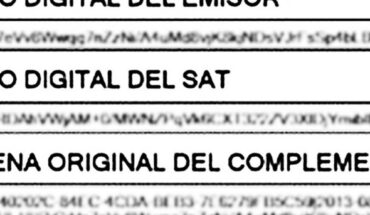Did you know that Chile and Uruguay are the only countries in South America that do not enshrine consumer rights in their constitutions?
Although both nations speak of the equality of people, the truth is that from the economic-social point of view, instances have occurred and occur that are far from equality.
It is prudent then to think that the State should have better tools to be able to control, maintain and protect this balance. Some have stated that it is not necessary to indicate these rights in the Constitution, because they are derived in “the protection of life, physical integrity, health and the environment”; but they forget that people also have an important role in the economic and that, in an act of consumption, the consumer is at an obvious disadvantage with the supplier, and that is why the State should seek greater protection in the protection of their consumer rights, thus trying to balance the principle of equality.
As we know, a Constitution seeks to enshrine certain rights and duties of utmost importance to a society, creating a core of content that the State must respect, regulate, promote and ensure.
Fortunately, in Chile, the State has Great Allies in the protection of Consumers, these are the Consumer Associations. Consumer law and, within it, the resale right of consumers are still very new terms in the legal world. However, the consumer protection movement has burst with great force into all areas of social life. Consumer associations play a very important role by acting as a corrective element for the deviations that competition and the free market incur. Since these organizations come to balance the legal position of consumers vis-à-vis entrepreneurs. It should be noted that they are concerned with ensuring the protection of consumer laws for all suppliers of products and services, including government entities on duty.
Currently, the consumer protection laws, Law 19.496 (07-Mar-1997) and Pro-Consumer Law 21.398 (Dec 24, 2021), have established measures to encourage the protection of consumer rights, but it continues to be the general rule of application for consumer acts that have the character of mixed acts, concluded between suppliers and consumers, but supplementary with respect to those economic activities regulated in special laws.
On the other hand, the depersonalization and increasing digitalization of consumption have great challenges in order to guarantee the rights of consumers. In recent times the consumer protection regime has taken directions that emphasize the security of the final consumer and the best protection of their privacy.
The global health crisis and the development of new technologies, allowed and accelerated that the relationships that characterize consumption can completely dispense with any human contact, thus consolidating the digital age with the improvement of transactions by electronic means. And this forces us to rethink the way in which human coexistence develops.
A deepening of the protection of consumer rights is consistent with the provisions of the United Nations guidelines on the subject.
The drafting of a new Constitution is an incomparable opportunity to choose between deepening and consolidating the system for the protection of consumer rights or, otherwise, maintaining a minimalist stance for the coming decades. It seems that the first is coincident with the social demands that initiated this process of transformation.
Follow us on
The content of this opinion column ands of exclusive responsibility of its author, and does not necessarily reflect the editorial line or position of El Mostrador.





